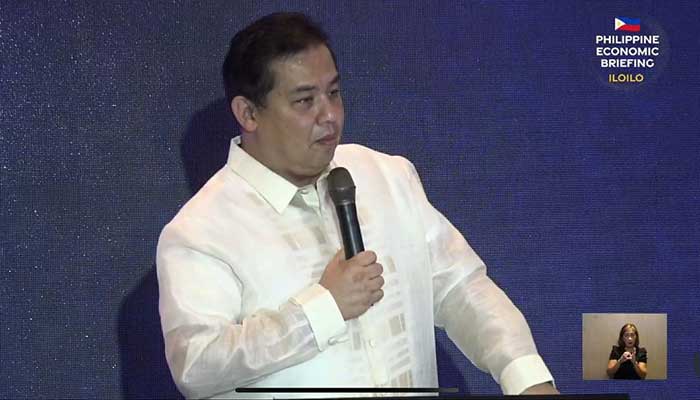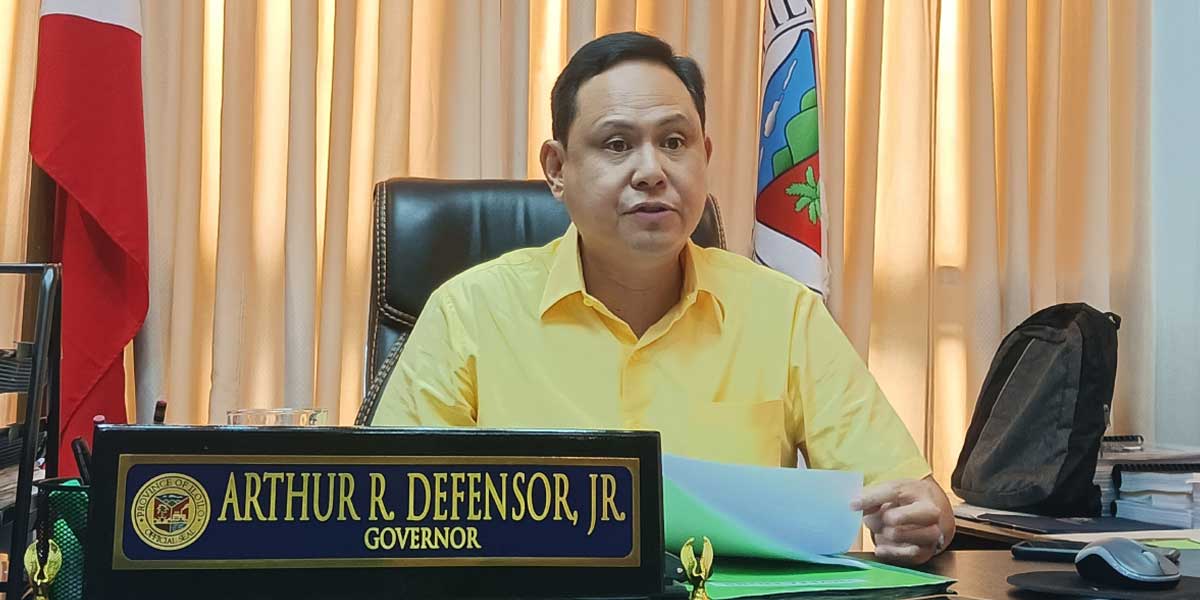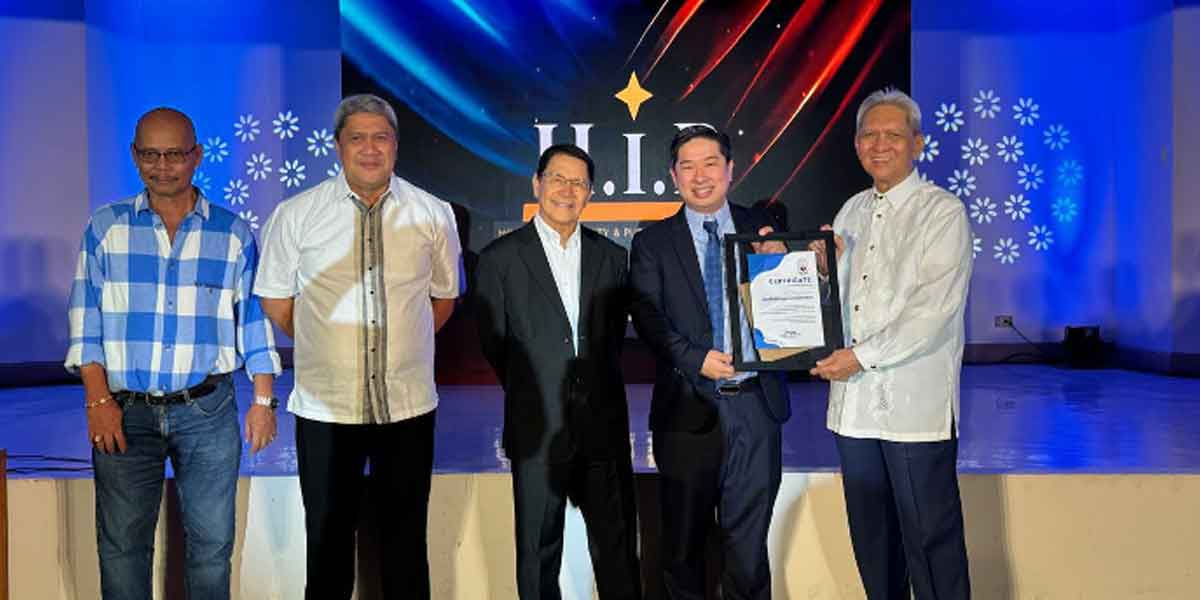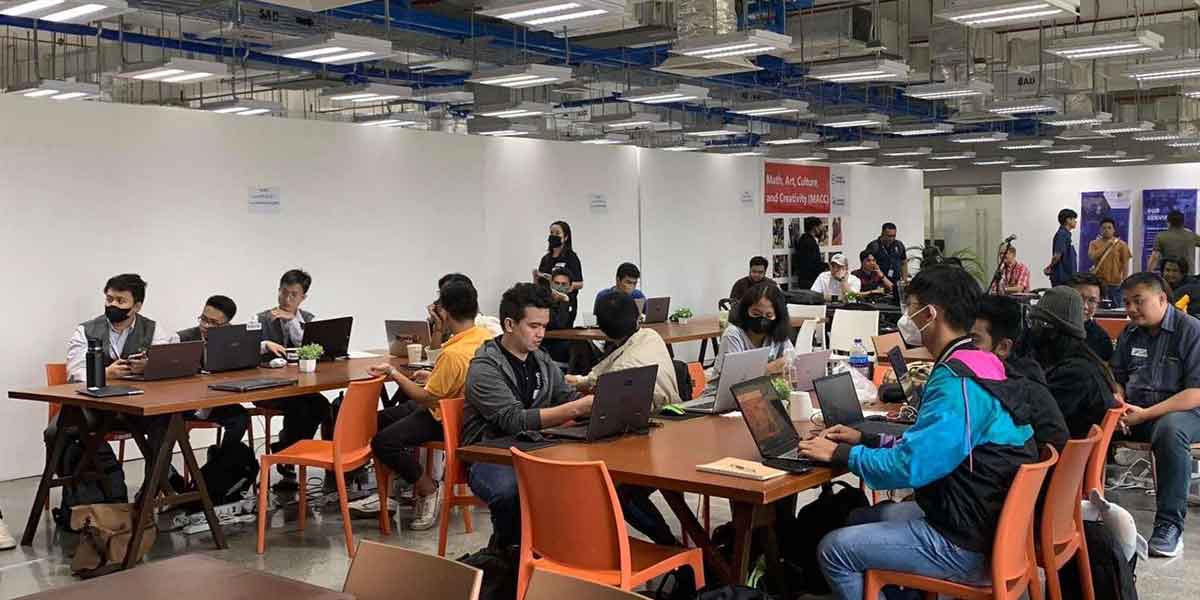
By Rjay Zuriaga Castor
The House of Representatives is considering a “people’s initiative” to further push moves to amend the 1987 Constitution, Speaker Ferdinand Martin G. Romualdez revealed on Monday, December 11.
Speaking at the Philippine Economic Briefing held at Courtyard by Marriott hotel in Iloilo City, Romualdez disclosed that the lower house is eyeing to address what he described as a “procedural gap” through the power of the people to propose amendments to the Constitution.
“I will be actually preempting our all party leaders’ caucus this afternoon […] We are thinking right now of addressing the procedural gap or question as to how we amend the Constitution. We will highly recommend that we embark on our people’s initiative to cure this impasse, so to speak, on how we vote,” he said before economic leaders.
There are three methods in proposing to amend or revise the Constitution: a people’s initiative, a constituent assembly, and a constitutional convention (con-con).
In a people’s initiative, a petition has to be signed by at least 12 percent of the total number of registered voters, with every legislative district represented by at least 3 percent of voters.
Romualdez noted that with the people’s initiative, it will help in determining how the House and the Senate should vote on proposals amending the Constitution.
“We would like to amend the constitution vis-a-vis how we procedurally amend the same and that’s either we vote jointly or separately. We would like to have that resolved by and through a people’s initiative,” he explained.
Whether to sit and vote jointly or separately, however, is where the Senate and the House differ. The 1987 Constitution is silent on the manner by which Congress should sit and vote.
Romualdez is hoping that the lower house can discuss this as soon as possible so they could have some clarity on the procedures, especially since certain provisions of the Constitution are “restrictive” to the country’s economic growth.
“We want to do this because we really want to address the economy. We want to lift the restrictive provisions in our constitution vis-a-vis the economy,” he said.
He further emphasized that the Constitution should be “prospective and not reactionary.”
“Right now it is very prohibitive, the most prohibitive in the region. We would like to lift these restrictions and allow the legislator to just regulate the economy just like other nations do,” he added.
He did not detail this time what provisions of the Constitution are restrictive to the economy during the country’s economic briefing.
During the Philippine Constitution Association Day in September this year, Romualdez said some outdated and restrictive economic provisions that needs to be amended are Article XII, Section 10, mandating a 60-40 ownership in favor of Filipinos in the development of natural resources; Article XVI, Section 11, limiting mass media ownership exclusively to Filipino citizens; and Article XII, Section 11, capping foreign ownership of land.
“It’s been very very challenging. It’s been three and a half decades when it comes to this topic. What we feel [is] that it’s timely and that we would like to get your support as well on this matter,” he stressed.
PREVIOUS ATTEMPTS
The 1987 Constitution was adopted after the decades-long Martial Law period of former dictator Ferdinand Marcos, and various administrations have attempted to modify the 36-year-old document — all of which resulted in failure.
During the administration of then-President Fidel Ramos in 1997, the People’s Initiative for Reform, Modernization, and Action sought a parliamentary system of government and the amendment of Article 7, Section 4, which states that the president is not eligible for re-election.
This amendment was pushed through a people’s initiative, reportedly gathering 11.5 million signatures.
The second attempt occurred under President Joseph Estrada in 1999. Estrada established the Constitutional Correction for Development, advocating for the removal of foreign ownership on land, public utilities, schools, mass media, mining firms, and advertising agencies.
Under former President Gloria Macapagal Arroyo, several attempts were made, including a push for Federalism and the liberalization of the economy, with changes proposed through all three means of amendment.
In 2014, former President Benigno Aquino also welcomed the idea of constitutional changes, including adjustments to term limits for officials, potentially allowing him to serve a second six-year term.
Former President Rodrigo Duterte also advocated for a federal form of government, and several hearings in the House of Representatives proposed changes such as limited protection for free speech, abolition of the Office of the Vice President, Office of the Ombudsman, and Judicial and Bar Council, among others.
However, for President Ferdinand Marcos Jr., amending the Constitution is “not a priority for me.”
“There’s so many other things that we need to do first, that we can still do, we can achieve,” he said in February this year.
WHERE ARE WE NOW?
Under the Marcos administration, the push to amend the Constitution was largely driven by top lawmakers, including House Speaker Romualdez, the president’s cousin, and Senate constitutional amendments panel chairperson Senator Robin Padilla.
There are two major developments so far on the amendments pushed by Romualdez and Padilla: the approval for second reading of Resolution of Both Houses 6 (RBH 6) in February and approval for third reading of House Bill (HB) 7352 in March of this year.
RBH No. 6 is a consolidated version of all resolutions calling for charter change through a con-con. The resolution was principally authored by Romualdez.
Meanwhile, HB 7325 outlines the procedures for amending the constitution through a hybrid con-con.
Under a con-con, a separate body of representatives elected by the voting public will be created and would vote on revisions or amendments.
The con-con members were elected by the voting public through a simultaneous election held with the Barangay and Sangguniang Kabataan elections in October 2023.
“This is what we will be embarking on in the ensuing month, and we will be working hand in hand with the economic managers to determine the priorities and decide what should be taken up first,” Romualdez said.
“These initiatives are all being undertaken in pursuit of the economic managers’ thrust to transform the economy,” he added.





















